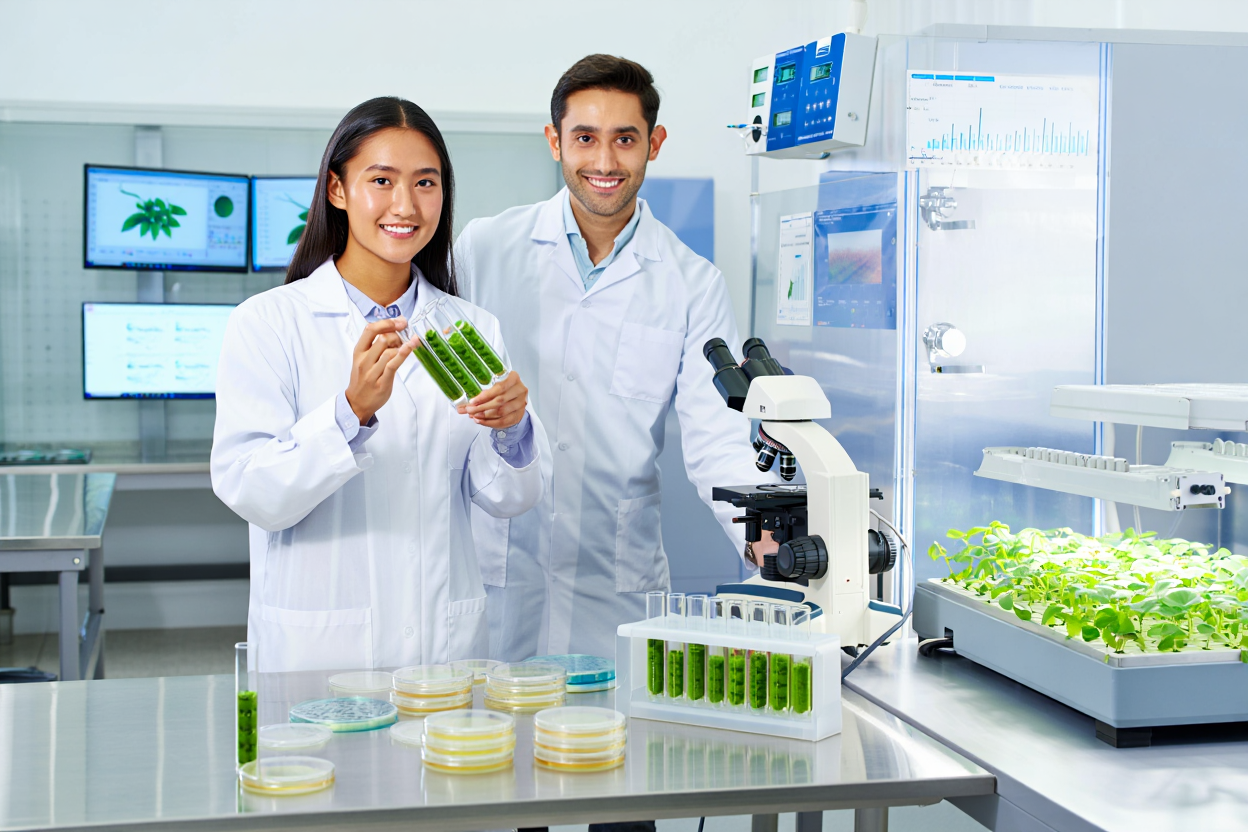Research Materials for Bioengineering and Food Production
As global challenges drive innovation in food systems and biotechnology, the fields of bioengineering and food production are evolving rapidly.

Research Materials for Bioengineering and Food Production
Researchers and engineers are working to develop sustainable solutions for agriculture, nutrition, bioprocessing, and food security. These efforts rely heavily on the availability of high-purity metals, alloys, and polymers to support advanced research and the development of next-generation tools and systems.
At Advent Research Materials, we supply research-grade materials trusted by scientists and engineers in biotechnology, agricultural innovation, and food technology. Our high-quality metals, alloys, and polymers are used in a range of applications - from precision fermentation and biosensors to lab-scale equipment and food-safe processing tools.
Materials Used in Bioengineering
Bioengineering combines principles of biology and engineering to design tools, systems, and technologies for agriculture, healthcare, and the environment.
High-performance materials play a foundational role in the research and fabrication of:
1. Bioreactors and Fermentation Systems
- Stainless steel – corrosion-resistant and food-grade, used for vessels and fittings
- PTFE (polytetrafluoroethylene) – ideal for tubing and seals due to chemical resistance
- Aluminium and its alloys – lightweight and machinable for structural components.
2. Sensors and Monitoring Devices
- Silver and gold – highly conductive, used in biosensors and electrochemical sensors for real-time process monitoring
- Platinum – used in high-precision analytical instrumentation
3. Microfluidic and Lab-on-a-Chip Devices
- Polymers such as PEEK and PTFE – used for fluid channels due to durability and biocompatibility
- Nickel and copper alloys – used for microfabricated components requiring strength and conductivity
Materials in Food Production R&D
Innovative food production research includes cellular agriculture, precision fermentation, and food-safe process development. Materials used in these areas must meet both scientific and food-safety standards:
- High-purity stainless steel and aluminium – used in prototype food processing equipment
- Polymers such as PTFE and PEEK – suitable for components in contact with food substances
- Copper and silver – antimicrobial properties beneficial in hygienic design
Why Material Purity Matters in Bioengineering and Food Systems
In both bioengineering and food-related applications, material contamination can compromise results or render processes unsafe. That’s why researchers working at the forefront of these fields choose Advent's high-purity metals and polymers. Our materials are used in:
- Academic research projects exploring sustainable food solutions
- Pilot plant systems for fermentation and food production
- Lab-scale bioreactor design and development
- Biosensor development and integration
Our Commitment to Research Fields
We already support customers across the bioengineering and food production research sectors, including universities, biotech startups, and agricultural R&D labs.
Our materials are selected for their consistency, traceability, and compatibility with high-precision scientific equipment.
Key Materials for Bioengineering and Food Production
- Metals: Silver, gold, platinum, copper, nickel, aluminium, stainless steel
- Alloys: Aluminium alloys, nickel-based alloys, stainless steel variants
- Polymers: PTFE, PEEK
Each of these materials is available in a range of forms and sizes, including foil, wire, rod, sheet, and disc.
Supporting Your Research
Whether you're developing microfluidic systems for agricultural diagnostics, testing new food processing methods, or designing bio-reactive sensor platforms, we are here to help.
Explore our full range of products for bioengineering, food science, and life science research.
Blog Articles
Read our latest articles to find out more about our new product lines, customer research highlights and corporate milestones.
Read
Meet the team
The firm was first set up in Suffolk and moved to Oxfordshire 2000, where founders Andrew and Sara Goodfellow were joined by their son, Dr Chris Goodfellow in 2007 and their daughter-in-law Carli Goodfellow in 2017.
More)-(2).png?width=50)